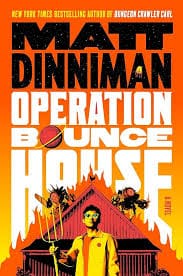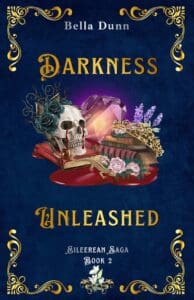
Synopsis:
Inside a luxury housing complex, two misfit teenagers sneak around and get drunk. Franco Andrade, lonely, overweight, and addicted to porn, obsessively fantasizes about seducing his neighbor―an attractive married woman and mother―while Polo dreams about quitting his grueling job as a gardener within the gated community and fleeing his overbearing mother and their narco-controlled village. Each facing the impossibility of getting what he thinks he deserves, Franco and Polo hatch a mindless and macabre scheme. Written in a chilling torrent of prose by one of our most thrilling new writers, Paradais explores the explosive fragility of Mexican society―with its racist, classist, hyper violent tendencies―and how the myths, desires, and hardships of teenagers can tear life apart at the seams.
Review:
Fernanda Melchor’s “Paradais,” translated by Sophie Hughes is an unsavoury little book that burrows its way under the skin and settles. Commenting upon class disparities, misogyny and a whole host of other societal failings and rancid aspects of humanity “Paradais,” is grim and gritty, and claustrophobic- a read that will have you tugging at your collar and unable to tear yourself from its sticky pages and breathless prose. Stylistically literary, but wholly horrifying in its content, “Paradais,” will make the reader uncomfortable in the same way that Alissa Nutting’s “Tampa,” or Brian Evenson’s “Father of Lies,” does- well aware that its particular, urban brand of horror is tangible, local -shit that actually happens all the time- and all the more unsettling for it.
We follow Polo, just turned 16 who is continuously berated by his mother, and really rather annoyed at having to give up his bed for his cousin Zorayda. Having “signed away his soul,” he works as a gardener with Urquiza, working ridiculous hours tidying up after upper-middle class residents of Paradais, and further lambasted by his mother should he dare even show a hint of frustration or exhaustion. Forced to donate his wage to his Mum, to help pay off loans, and discourage his mounting problem with alcoholism, he earns little more than scorn. During a particularly rough shift, and having found an almost pristine cigarette butt to bum, he meets Franco Andrade, and it’s that night, when the two pass a bottle of whiskey between them that he effectively seals his fate.
Franco Andrade is a lonely, overweight, idly entitled porn addict who relentlessly fantasises over his neighbour Señora Marián, tabloid star, wife and mother. In return for the booze Franco, or fatboy as he’s referred to throughout, can supply with his grandparent’s cash, Polo spends his evenings listening to his lurid and fantastical monologues- and for a while, that’s enough. However, with Franco expelled, and his grandparents planning to send him away and whip him into shape, the tone shifts and he decides the time to act is now, and ropes Polo into a vile scheme.
Classics like “It,” and “Boy’s Life,” would not be the masterpieces they are without that coming-of-age element. The often teenage protagonists are strengthened and uplifted by one another in the face of adversity, and that scrappy, kids-on-bikes, companionship often defines adolescence within the genre. This is a trope that Melchor turns inside out and wears as a crude sock puppet in “Paradais.” Polo and Franco aren’t characters I think we’re ever intended to feel sympathy for (although Franco is decidedly a nastier piece of work) but are made worse still by one another’s company. They’re accelerants. It’s an un-coming of age story if such a thing is possible, in which companionship, pacts and friendship is swapped out for hormones, vices and influences, and the only things growing are rot, tensions and a hole that neither of them are able to claw their way out of.
Melchor writes not from the safe narrative distance of the third person, but from deep within the heads of her characters. Not nice places to be. Her prose is deliberately suffocating, long, winding, even aggressive, not just in an effort to shock (although shock it does) but to allow the reader to even glimpse what on earth is going on in Franco and Polo’s overheated brains.
The fact that our two young men are from incredibly different homes and social backgrounds, goes to show that class alone is not what corrupts. Despite being insulated by wealth and privilege, Franco is every bit as misogynistic and violent as Polo, who is so poverty stricken that he sees joining the Narcos as a viable way out. This behaviour is not always born out of deprivation, desperation or a lack of- sometimes it’s just allowed to exist ambiently, unchallenged, before surfacing in the form of entitlement and a need for domination. With no moral cushioning Melchor shows that bad behaviour can’t be attributed wholly to any factor, social, geographic or otherwise, and that we can quite easily become monsters when we’re not asked to be anything else.
It feels strange to say that I liked “Paradais,” because that implies a level of enjoyment, and this book is not one designed for comfort. It left me somewhere between nausea and awe, and frankly I’m hesitant to recommend it to just anyone. God it’s good though. With searing writing and important, timely and masterfully handled themes regardless of whether you devoured or DNF’d “Paradais,” it is undeniably a book of extraordinary merit. Before you pick it up though, I implore you to consider whether the minds of Polo and Franco are places you want to spend time in… if yes, I’ll see you on the other side.









Leave a Reply